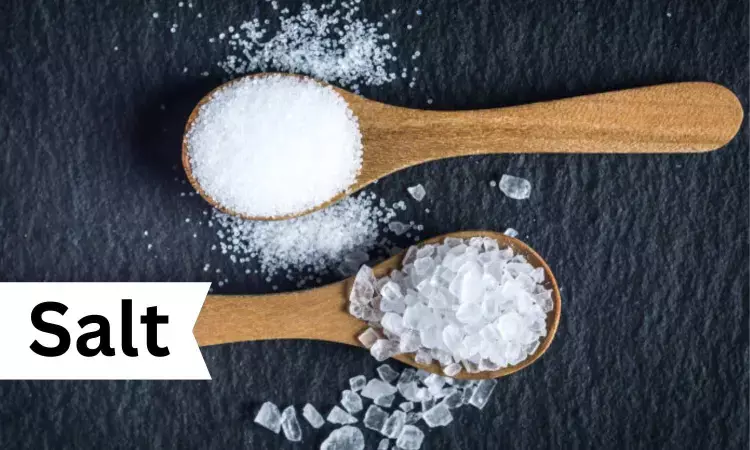- Home
- Medical news & Guidelines
- Anesthesiology
- Cardiology and CTVS
- Critical Care
- Dentistry
- Dermatology
- Diabetes and Endocrinology
- ENT
- Gastroenterology
- Medicine
- Nephrology
- Neurology
- Obstretics-Gynaecology
- Oncology
- Ophthalmology
- Orthopaedics
- Pediatrics-Neonatology
- Psychiatry
- Pulmonology
- Radiology
- Surgery
- Urology
- Laboratory Medicine
- Diet
- Nursing
- Paramedical
- Physiotherapy
- Health news
- Fact Check
- Bone Health Fact Check
- Brain Health Fact Check
- Cancer Related Fact Check
- Child Care Fact Check
- Dental and oral health fact check
- Diabetes and metabolic health fact check
- Diet and Nutrition Fact Check
- Eye and ENT Care Fact Check
- Fitness fact check
- Gut health fact check
- Heart health fact check
- Kidney health fact check
- Medical education fact check
- Men's health fact check
- Respiratory fact check
- Skin and hair care fact check
- Vaccine and Immunization fact check
- Women's health fact check
- AYUSH
- State News
- Andaman and Nicobar Islands
- Andhra Pradesh
- Arunachal Pradesh
- Assam
- Bihar
- Chandigarh
- Chattisgarh
- Dadra and Nagar Haveli
- Daman and Diu
- Delhi
- Goa
- Gujarat
- Haryana
- Himachal Pradesh
- Jammu & Kashmir
- Jharkhand
- Karnataka
- Kerala
- Ladakh
- Lakshadweep
- Madhya Pradesh
- Maharashtra
- Manipur
- Meghalaya
- Mizoram
- Nagaland
- Odisha
- Puducherry
- Punjab
- Rajasthan
- Sikkim
- Tamil Nadu
- Telangana
- Tripura
- Uttar Pradesh
- Uttrakhand
- West Bengal
- Medical Education
- Industry
Salt substitute use not salt reduction key to BP lowering and CVD prevention in elderly: DECIDE trial

China: The use of potassium-based salt substitutes rather than efforts to restrict salt supply may achieve blood pressure (BP) lowering in older people, findings from DECIDE trial have revealed.
The study, published in Nature Medicine, showed clear benefits of salt substitute versus usual salt for BP lowering and protection against cardiovascular events in people living in residential elderly care facilities in China. An increase in the frequency of biochemical hyperkalemia was also found without adverse clinical outcomes.
"Efforts to restrict the supply of salt did not achieve the target for BP lowering planned in our study,' the researchers wrote. This requires further analysis to understand this intervention's implementation and feasibility better.
High BP is the leading cause of death, and previous studies have shown that increasing dietary potassium intake and lowering dietary sodium intake can reduce blood pressure. In China, sodium consumption is high, and salt substitution is a proven nonpharmaceutical intervention for lowering blood pressure. There have been few studies of salt substitutes among older populations at the most significant risk and who have the most benefit. There have also been concerns about hyperkalemia risk, but safety data are limited.
Against the above background, Yifang Yuan, Peking University First Hospital, Beijing, China, and colleagues aimed to use a factorial design to find out the safety and effectiveness of two scalable and practical sodium reduction intervention strategies in parallel, targeting elderly collectively living in residential elderly care facilities: (1) replacement of usual salt with salt substitute and (2) making a stepwise reduction in the salt quantity/salt substitute supplied to facility kitchens.
They conducted a clinical trial in which 48 residential elderly care facilities in China with 1,612 participants (55 years or older) were cluster-randomized using a design of 2 × 2 factorial to the provision of salt substitute (62.5% NaCl and 25% KCl) versus usual salt and to a progressively restricted versus usual salt supply or salt substitute for two years.
The researchers reported the following findings:
- Compared with usual salt, salt lowered systolic blood pressure (–7.1 mmHg), meeting the trial's primary outcome. In contrast, restricted supply compared with the usual salt or salt substitute did not affect systolic blood pressure.
- The salt substitute also lowered diastolic blood pressure (–1.9 mmHg) and led to fewer cardiovascular events (hazard ratio (HR) 0.60) but did not affect total mortality (HR 0.84).
- From a safety standpoint, salt substitute raised mean serum potassium and resulted in more frequent biochemical hyperkalemia but was not tied to adverse clinical outcomes. In contrast, salt restriction did not affect any study outcome.
The studies consistently and strongly support the more widespread use of salt substitutes to prevent cardiovascular disease (CVD). However, efforts to restrict salt supply were unsuccessful, with no detectable effect on blood pressure during the two years of intervention and no benefit for cardiovascular outcomes observed.
"The trial's results indicate that the use of salt substitutes, but not efforts to restrict salt supply, may achieve BP reduction and deliver health benefits to residents of China's elderly care facilities," the researchers conclude.
Reference:
Yuan, Y., Jin, A., Neal, B. et al. Salt substitution and salt-supply restriction for lowering blood pressure in elderly care facilities: a cluster-randomized trial. Nat Med 29, 973–981 (2023). https://doi.org/10.1038/s41591-023-02286-8
Dr Kamal Kant Kohli-MBBS, DTCD- a chest specialist with more than 30 years of practice and a flair for writing clinical articles, Dr Kamal Kant Kohli joined Medical Dialogues as a Chief Editor of Medical News. Besides writing articles, as an editor, he proofreads and verifies all the medical content published on Medical Dialogues including those coming from journals, studies,medical conferences,guidelines etc. Email: drkohli@medicaldialogues.in. Contact no. 011-43720751


